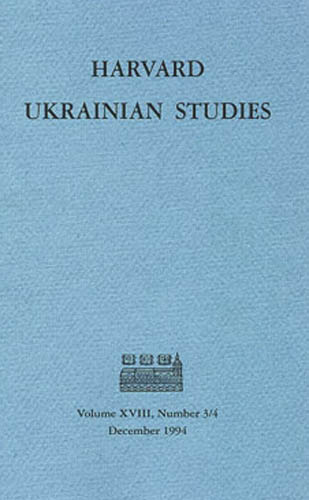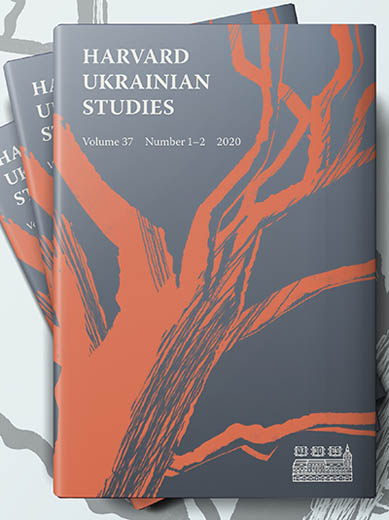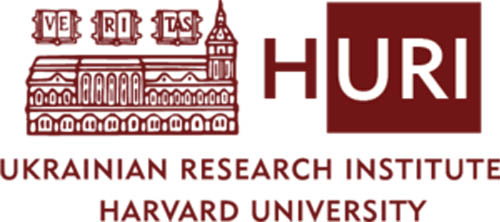Harvard Ukrainian Research Institute
Harvard Ukrainian Research Institute (HURI; Український науковий інститут Гарвардського університету). A research institute of Ukrainian studies at Harvard University in Cambridge, Massachusetts, USA. It was established in June 1973 on the recommendation of the university’s ad hoc Committee on Ukrainian Studies. This committee, which included professors Omeljan Pritsak, Ihor Ševčenko, Richard Pipes, Horace Lunt, Wiktor Weintraub, and Edward Keenan, had been appointed in 1968 by the dean of the Faculty of Arts and Sciences to formulate and supervise a program for Ukrainian studies at Harvard. The founding of HURI followed the endowment of chairs in Ukrainian history (1968), literature (1973), and linguistics (1973) and the introduction of courses in Ukrainian studies in several Harvard departments. In 1974 the ad hoc committee became the Standing Committee on Ukrainian Studies, an event that marked the completion of the formal structure of Ukrainian studies at Harvard.
The goals of the institute are to support research, publications, and teaching in Ukrainian studies. HURI conducts regular seminars and lectures in Ukrainian studies, holds conferences, and sponsors research fellows (more than 166 since 2001). Research fellowships are awarded annually to senior scholars and recent postdoctoral scholars with the support from the Ukrainian Studies Fund and the Ukrainian diaspora community. Currently HURI operates three programs: Harvard Ukrainian Summer Institute (that has offered courses in Ukrainian studies since 1971, in conjunction with the Harvard Summer School), the Temerty Contemporary Ukraine Program (a program focused on contemporary Ukraine funded by the Temerty Family Foundation), and Seminars and Memorial Lectures (the weekly Seminar in Ukrainian Studies and three permanent memorial lecture series: the Vasyl and Maria Petryshyn Memorial Lecture in Ukrainian Studies; the Zenovia Sochor Parry Memorial Lecture; and the Bohdan Krawciw Memorial Lecture).
HURI’s two long-running publication series include Harvard Series in Ukrainian Studies and Harvard Library of Early Ukrainian Literature. Among their numerous publications are monographs, conference proceedings, documents, and offprints. The initial focus of the publications program was on medieval and early modern periods, philology, and comparative analyses of sources, such as the texts and documents relating to the millennium of the Christianization in Ukraine. Following the 1991 Ukraine’s Declaration of Independence, HURI publications have come to encompass additional topics, time periods, and disciplines, including the Famine-Genocide of 1932–3, Ukrainian nationalism between two world wars, Ukrainian women in the GULAG, and Ukraine’s nuclear disarmament. HURI’s publications program distributes its titles through Harvard University Press and collaborates with other institutes and publishers, such as Academic Studies Press, Krytyka Press (Kyiv, Ukraine), and the Canadian Institute of Ukrainian Studies (CIUS) Press. HURI’s main scholarly journal is Harvard Ukrainian Studies (est. 1977). Between 1970 and 1979 HURI also published Minutes of the Seminar in Ukrainian Studies that provides a record of the first nine years of its weekly Seminar in Ukrainian Studies. HURI has on staff a Ukrainian specialist who oversees the collection of Ucrainica in the Harvard University library system (and the reference library located at the institute). Among HURI’s newest resources is MAPA: Digital Atlas of Ukraine program. It brings the latest technological innovations, particularly Geographic Information Systems, or GIS, to studies of modern Ukranian history and contemporary political geography. Among its modules are the interactive maps of the Holodomor, spaces of memory after the Euromaidan Revolution, and the consequences of the Chornobyl nuclear disaster.
Omeljan Pritsak served as HURI’s first director until 1989, and Ihor Ševčenko was the associate director, except in 1977 and 1985–6, when Ševčenko served as director. Frank Sysyn was an associate director in 1985–8. Subsequently, HURI has been headed by George Grabowicz (1989–96), Roman Szporluk (1996–2003), Michael Flier (2004–13), and Serhii Plokhy (since 2013). Other scholars who have worked for HURI include Margarita Balmaceda, Andrea Graziosi, Lubomyr Hajda, Halyna Hryn, Edward Kasinec, Patricia Kennedy Grimsted, Ksenya Kiebuzinski, Zenon Kohut, Oleh Kotsyuba, Paul Robert Magocsi, Steven Seegel, Viktoriya Sereda, Oxana Shevel, Orest Subtelny, Michelle Viise, Lawrence Wolff, and others. Financial support for HURI has been provided by the Ukrainian Studies Fund.
BIBLIOGRAPHY
Omeljan Pritsak, Chomu katedry ukraїnoznavstva v Harvardi? Vybir statei na temy nashoї kul'turnoї polityky (1967–1973) (Cambridge, Mass 1973)
Andrew Sorokowski, ed. The Ukrainian Research Institute: Twenty Years (Cambridge, Mass 1993)
Natalia Shevchenko, ‘Ukraїns'kyi naukovyi instytut Harvards'koho universytetu v intehratsiinykh protsesakh vitchyznianoї istoriohrafiї do svitovoї istorychnoї nauky,’ Naukovi pratsi Chornomors'koho derzhavnoho universytetu imeni Petra Mohyly. Seriia: Istoriia (Mykolaiv 2014)
HURI website: https://huri.harvard.edu/
Marta Baziuk, Serhiy Bilenky
[This article was updated in 2021.]



